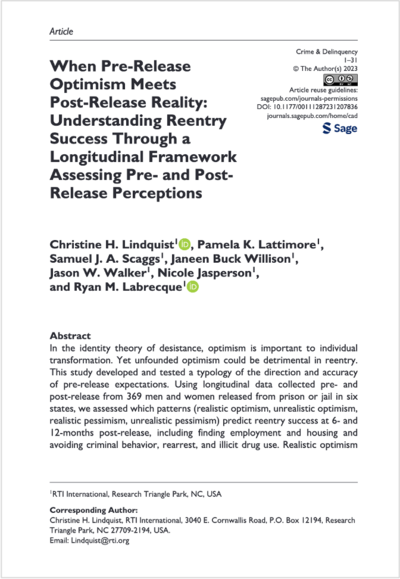When Pre-Release Optimism Meets Post-Release Reality: Understanding Reentry Success Through a Longitudinal Framework Assessing Pre- and Post-Release Perceptions
Report
Research
Topics:
Community Supervision: Probation and Parole
Correctional Supervision: Prisons and Jails
Employment
Housing
Substance Use Treatment
Reentry population:
Adults
Date:
Source:
Crime & Delinquency
When Pre-Release Optimism Meets Post-Release Reality: Understanding Reentry Success Through a Longitudinal Framework Assessing Pre- and Post-Release Perceptions
In the identity theory of desistance, optimism is important to individual transformation. Yet, as the authors of this article assert, unfounded optimism could be detrimental in reentry. This study, conducted by RTI International, developed and tested a typology of the direction and accuracy of pre-release expectations.
Using longitudinal data collected pre- and post-release from 369 men and women released from prison or jail in six states, the researchers assessed which patterns (realistic optimism, unrealistic optimism, realistic pessimism, unrealistic pessimism) predict reentry success at 6- and 12-months post-release, including finding employment and housing and avoiding criminal behavior, rearrest, and illicit drug use. Realistic optimism was found to be positively associated with reentry success in some domains.
The article discusses the study's implications for reentry practitioners.




